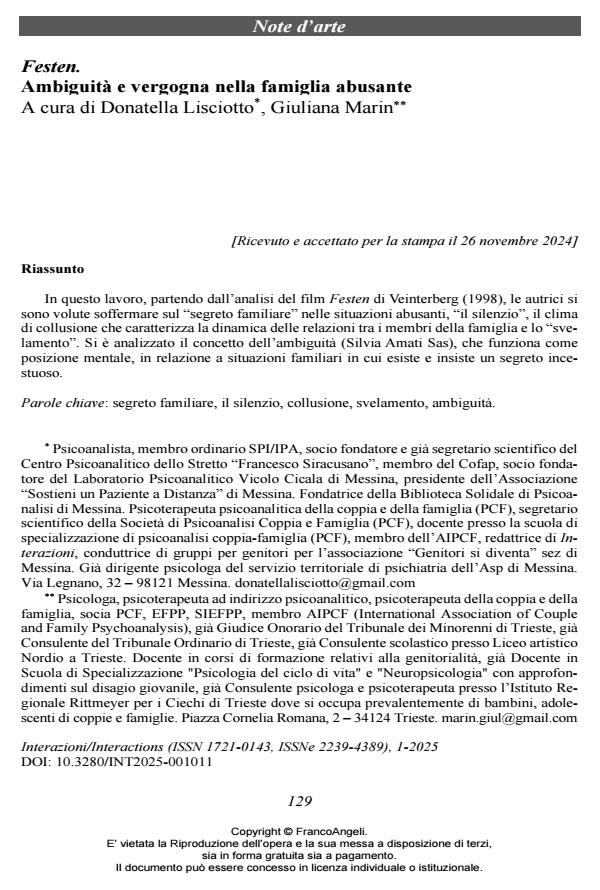Festen. Ambiguità e vergogna nella famiglia abusante
Titolo Rivista INTERAZIONI
Autori/Curatori Donatella Lisciotto, Giuliana Marin
Anno di pubblicazione 2025 Fascicolo 2025/1
Lingua Italiano Numero pagine 12 P. 129-140 Dimensione file 93 KB
DOI 10.3280/INT2025-001011
Il DOI è il codice a barre della proprietà intellettuale: per saperne di più
clicca qui
Qui sotto puoi vedere in anteprima la prima pagina di questo articolo.
Se questo articolo ti interessa, lo puoi acquistare (e scaricare in formato pdf) seguendo le facili indicazioni per acquistare il download credit. Acquista Download Credits per scaricare questo Articolo in formato PDF

FrancoAngeli è membro della Publishers International Linking Association, Inc (PILA)associazione indipendente e non profit per facilitare (attraverso i servizi tecnologici implementati da CrossRef.org) l’accesso degli studiosi ai contenuti digitali nelle pubblicazioni professionali e scientifiche
In questo lavoro, partendo dall’analisi del film Festen di Veinterberg (1998), le autrici si sono volute soffermare sul “segreto familiare” nelle situazioni abusanti, “il silenzio”, il clima di collusione che caratterizza la dinamica delle relazioni tra i membri della famiglia e lo “svelamento”. Si è analizzato il concetto dell’ambiguità (Silvia Amati Sas), che funziona come posizione mentale, in relazione a situazioni familiari in cui esiste e insiste un segreto incestuoso.
Parole chiave:segreto familiare, il silenzio, collusione, svelamento, ambiguità.
Donatella Lisciotto, Giuliana Marin, Festen. Ambiguità e vergogna nella famiglia abusante in "INTERAZIONI" 1/2025, pp 129-140, DOI: 10.3280/INT2025-001011